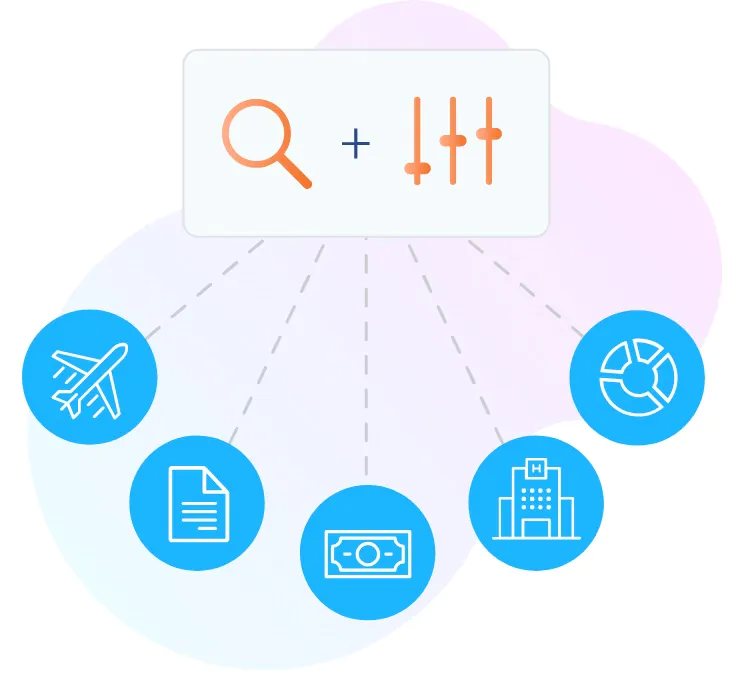© ROOT-NATION.com - Use of content is permitted with a backlink.

The COVID-19 pandemic brought the global travel industry to a grinding halt, leaving businesses grappling with unprecedented challenges and uncertainties. As the world gradually emerges from the shadows of the pandemic, corporate travel is poised for a resurgence, albeit in a vastly transformed landscape. The post-COVID era heralds a new paradigm for corporate travel, characterized by heightened safety protocols, evolving traveler preferences, and the widespread adoption of digital solutions. In this article, we explore the evolving landscape of corporate travel in the wake of COVID-19 and the pivotal role of digital solutions, including expense management administration tools, in facilitating a safe and efficient return to business travel.

The Recovery Phase
The road to recovery for corporate travel has been marked by cautious optimism and strategic adaptation. While the rollout of vaccines has injected a sense of confidence into the travel industry, businesses are proceeding with prudence, prioritizing the health and safety of their employees above all else. As travel restrictions ease and borders reopen, companies are reevaluating their travel policies, implementing stringent health and hygiene protocols, and embracing technology-driven solutions to mitigate risks associated with business travel.
Embracing Digital Transformation
One of the most significant shifts in corporate travel post-COVID-19 is the accelerated pace of digital transformation. Businesses are increasingly turning to technology to streamline travel processes, enhance traveler safety, and optimize expense management administration. Digital solutions such as online booking platforms, mobile itinerary management apps, and virtual collaboration tools have become indispensable assets in the post-pandemic travel toolkit.
The Rise of Flexible Travel Policies
In response to the fluid nature of the current travel landscape, companies are adopting more flexible travel policies that accommodate changing circumstances and prioritize traveler well-being. Flexible booking options, relaxed cancellation policies, and the provision of comprehensive travel insurance are some of the measures being implemented to instill confidence in employees while minimizing financial risks for the organization. Additionally, businesses are empowering travelers with greater autonomy and discretion in making travel-related decisions, fostering a culture of trust and empowerment.

Safety and Duty of Care
Ensuring the safety and well-being of employees remains paramount in the post-COVID era of corporate travel. Companies are implementing duty of care programs that encompass comprehensive risk assessments, real-time travel alerts, and 24/7 emergency assistance services. From pre-trip health screenings to on-the-ground support during emergencies, businesses are taking proactive steps to safeguard their travelers and fulfill their duty of care obligations.
The Hybrid Work Model
The widespread adoption of remote work during the pandemic has fundamentally altered the way businesses approach corporate travel. The rise of the hybrid work model, which combines remote work with periodic in-person collaboration, has reshaped travel patterns and preferences. While virtual meetings and remote collaboration tools have proven effective alternatives to traditional business travel, the value of face-to-face interactions in fostering relationships, driving innovation, and closing deals remains undeniable. As companies navigate this new dynamic, striking the right balance between virtual and in-person engagements will be key to optimizing travel-related expenditures and maximizing ROI.
Expense Management Administration Tools
In the post-COVID landscape, expense management administration tools play a critical role in streamlining travel-related expenses, ensuring compliance with travel policies, and enhancing financial visibility. These digital solutions automate expense reporting, streamline approval workflows, and provide real-time insights into travel spend, enabling businesses to optimize costs and drive efficiency. By integrating expense management administration tools with travel booking platforms and corporate card systems, companies can create a seamless end-to-end travel experience that enhances productivity and control.

Looking Ahead
The world continues to adapt to the realities of living with COVID-19, and corporate travel will undergo further evolution, shaped by changing regulations, technological advancements, and shifting traveler preferences. While the road ahead may be fraught with challenges, it also presents opportunities for innovation and growth.

